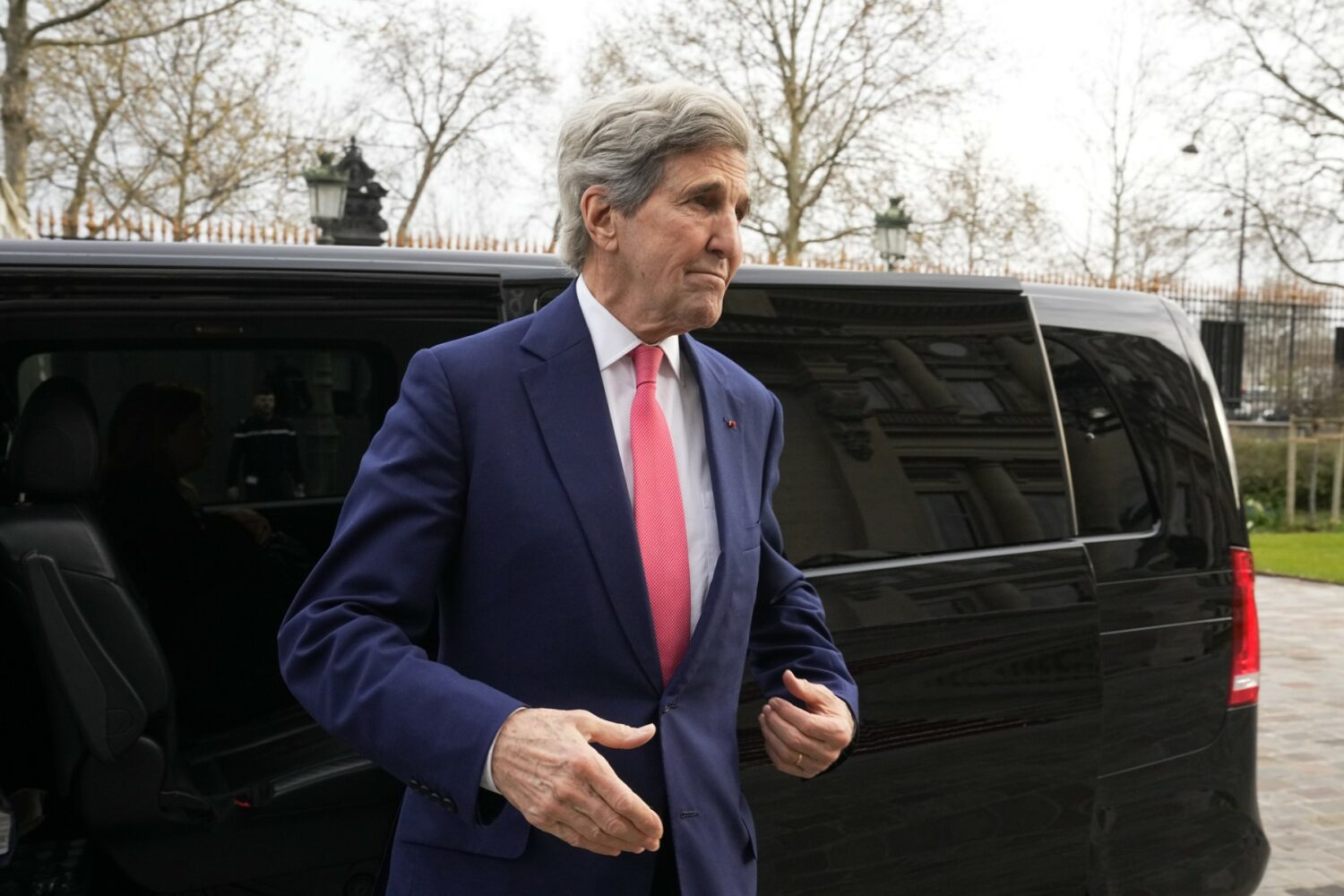DUBAI, UAE – US special climate envoy John Kerry has met senior Emirati officials in Abu Dhabi, including the head of the United Nations’ upcoming climate change conference, official media reported on Sunday.
The choice of Sultan Al Jaber, chief executive of the Abu Dhabi National Oil Company (ADNOC), to head December’s COP28 summit in Dubai has annoyed some climate activists and some Western legislators who fear it will hold back progress on reducing emissions.
Kerry met with Al Jaber and the UAE foreign minister, Abdullah bin Zayed, on Saturday, discussing “the existing partnership across various fronts with a special emphasis on climate-related issues”, the official WAM news agency said.
In January, Kerry welcomed Al Jaber’s appointment as COP28 head.
Over 100 lawmakers from the US Congress and European Parliament urged a “limit (to) the influence of polluting industries” at gatherings of the UN Framework Convention on Climate Change, in a letter to US President Joe Biden, European Commission President Ursula von der Leyen and UN Secretary General Antonio Guterres.
Al Jaber regularly calls for more investment in hydrocarbons to meet global energy demand, emphasizing the need to boost development of technologies for capturing carbon dioxide emissions.
Oil producers have for years touted carbon capture as a potential global warming solution, against criticism from climate experts who say it risks distracting from the urgent goal of slashing fossil fuel pollution.
With little investment and few projects in operation around the world so far, carbon capture technology is currently nowhere near the scale needed to make a significant difference to global emissions.








